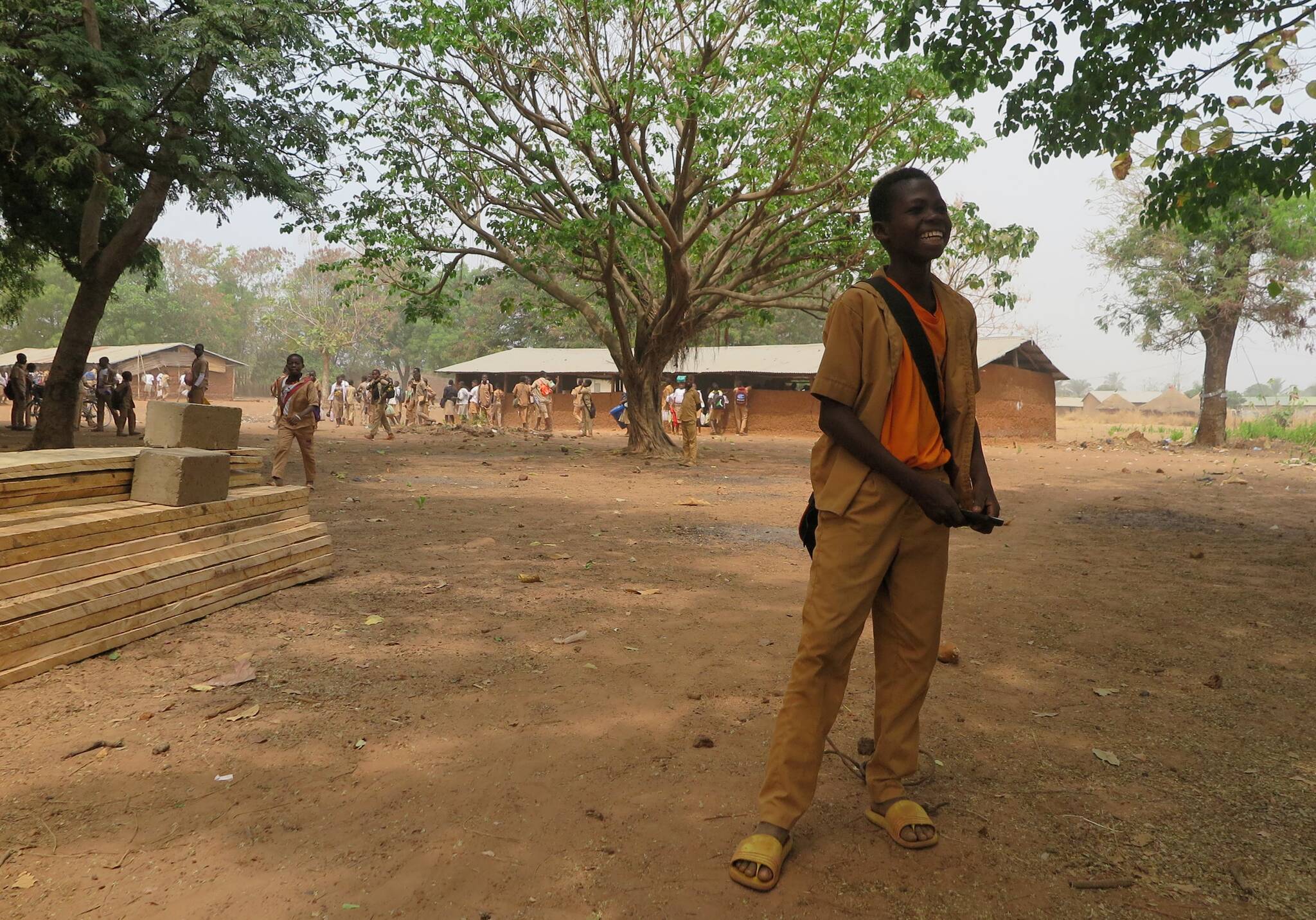Most people don’t get a first chance to help a school in Africa get built.
But Juneau resident Mary McEwen is now on her second, having recently assisted in the expansion of a school she helped bring into being nearly two decades ago.
“It’s a small rural village in northern Togo,” McEwen said in a phone interview. “It only has a primary school. If kids want to stay in school past fifth grade, they have to drop out of school or travel to a nearby village to go to school which generally means boarding with another family during the week.”
[Folk Fest returns full force to Juneau]
McEwen first came to Dimori years ago, she said, located near the western border with Ghana.
“I was a Peace Corps volunteer 20 years ago in Togo,” McEwen said. “I lived with a host family there for the two and a half years I was there.”
During her time there in the Peace Corps, local families raised enough money to bring teachers to the village, McEwen said, needing only a building to host them. McEwen was able to work with the Peace Corps to get a secondary school funded and built to host teachers, so that students would be able to attend grades six through nine in their own hometown.
McEwen returned home after her time in the Peace Corps, attending college and working in Juneau, but always keeping in touch with her host family in Togo and occasionally visiting.
“I’ve been back a few times to visit. My mom and I went back last September,” McEwen said. “(The school) was so successful we needed another building. It’s totally outgrown this. When the school was built in 2004, there were about 40 kids that went there. Right now, there’s a little over 500 in four classrooms. They attend in shifts.”
With that, McEwen said, she started looking into how they could build another building to hold the greatly enlarged student body. Without being a Peace Corps member, it wouldn’t be as simple as filing an application for funding.
“I said, ‘Well, we’ll see what we can do,’” McEwen said. “I said ‘How much does it cost, really?’ We did some back of envelope math and said, ‘Let’s just do this ourselves.’”
Her family was able to help fund the initial ask, McEwen said, while other people donating were able to fund assets like desks and digging a new latrine, a critical public health asset.
“I was struck by how warm and gracious Mary was,” said Hannah Kuhnert, a friend of McEwen’s, whose donation went towards desks for the enw school. “I was super curious and excited about that. That’s always something I’ve always wanted to do; to go to Africa and help.”
Kuhnert, who said she met McEwen through their respective daughters, said she was glad she was able to contribute, and to do so in a manner she was confident would help fund a meaningful project without going astray.
“I got really excited. I said ‘this is amazing.’ This is what I wanted to be a part of. I don’t even know how to describe it,” Kuhnert said. “It’s so fulfilling and humbling to know I could be part of this. That she’s doing this. It’s amazing that she’s reaching out to help these kids.”
That transparency and direct access to the people of the village building the school has helped immensely, McEwen said.
“We gave them a budget of $25,000 for the building. That’s coming from my family,” McEwen said. “In addition to that, more people have contributed a few thousand more. We’ve been using that to replace the latrine that’s there. Replace some desks. We’ll probably have some extra money to spend on books.”
McEwen said her family’s contribution was possible due to the bequest from a relative who believed in the importance of education.
“My great-uncle passed away this last year. He left quite a bit of money behind,” McEwen said. “We knew education was something he cared about. I know I’ve been thinking more critically about generational wealth and how we can use that better instead of maintaining inequalities.”
The project was only possible due to good communication with the folks in the village cultivated over years, and their preparedness in making the project shovel-ready, McEwen said.
“When I went back to formalize things, they had their bids ready, and they had a plan,” McEwen said. “All the ingredients were there, and I just had to add some cash.”
Communication with the people on the ground in Dimori has been eased by considerably expanded communications ability in Togo.
“One of the things that’s gratifying is how quickly everyone I know has been like, ‘OK, I’m in, what do you need?’” McEwen said. “This is a village with no running water, and just recently got some electricity. But they just got 3G phone coverage and a lot of people have access to a basic smartphone. The ease of communication this time around has been phenomenal.”
In many countries in Africa, cellphone coverage has exploded in areas that never had landlines, leapfrogging hardwired phones entirely.
“Most people don’t email. It’s not a way we communicate. WhatsApp is the main thing. Sometimes Facebook messenger, or Instagram messenger,” McEwen said. “Most people I’m working with have never used a landline.”
McEwen said she’ll return this year for the new school building’s opening.
“It’s like doing the same thing as I did two decades ago as a more grown-up adult,” McEwen said. “Some of the same people are involved. One of the committee members is 80 years old and he was there the first time.”
• Contact reporter Michael S. Lockett at (757) 621-1197 or mlockett@juneauempire.com.

